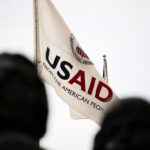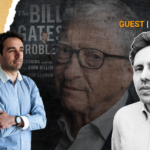
A health worker collects a sample for a COVID-19 test from a baby who arrived in a flight from Mexico at the Jose Marti International Airport in Havana, Cuba, Sunday, Nov. 15, 2020. The airport received its first commercial flights in over 8 months, since the country locked down to curb the spread of the coronavirus pandemic. (AP Photo/Ramon Espinosa)





